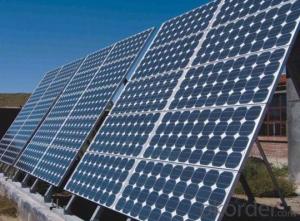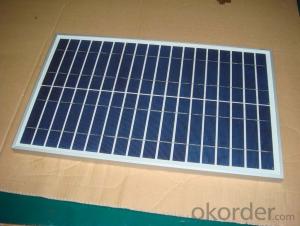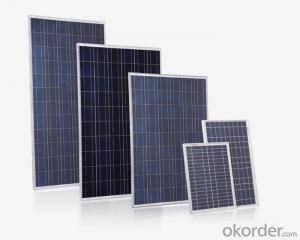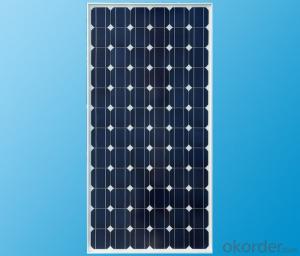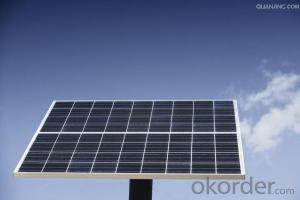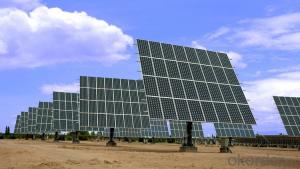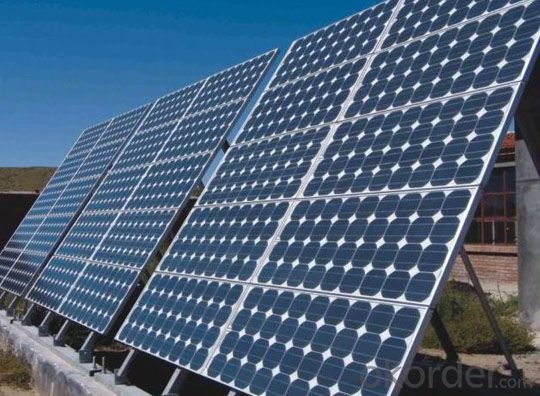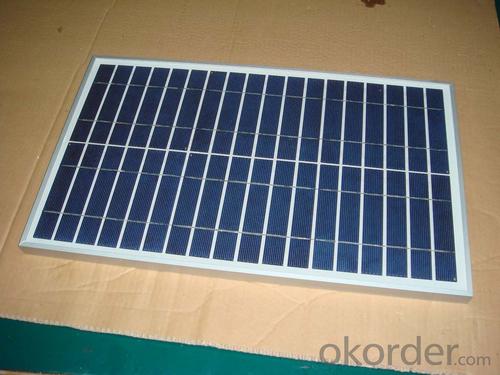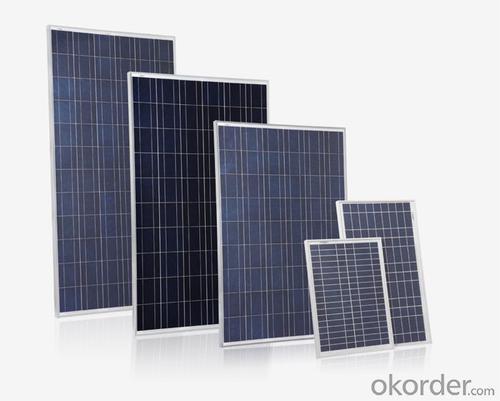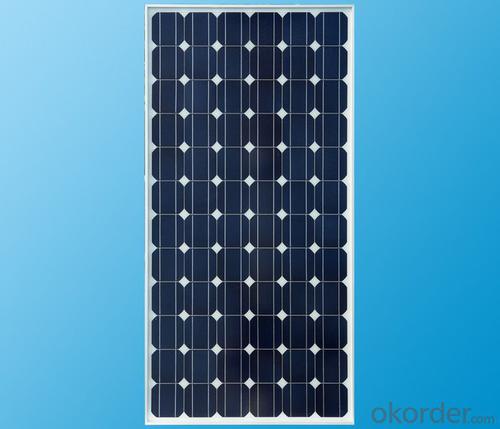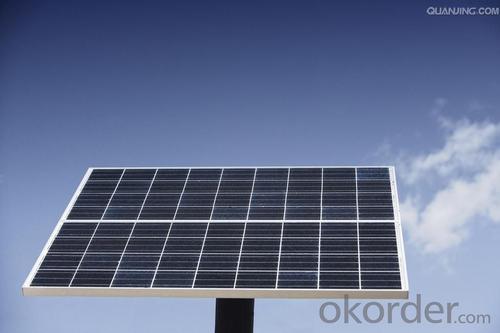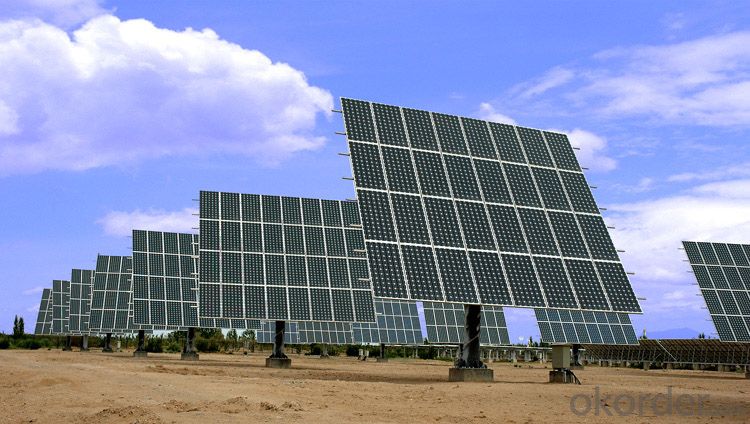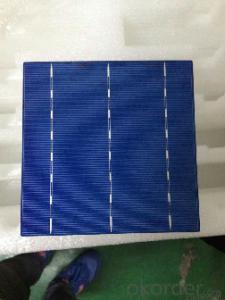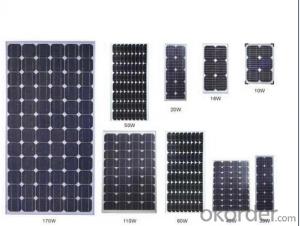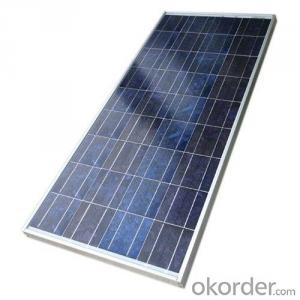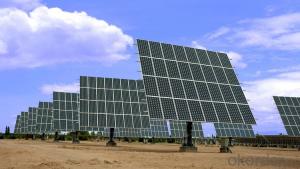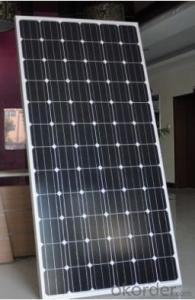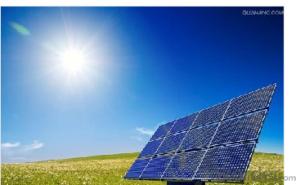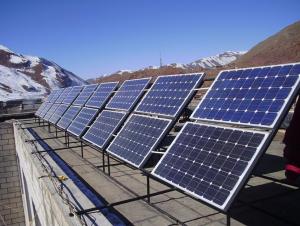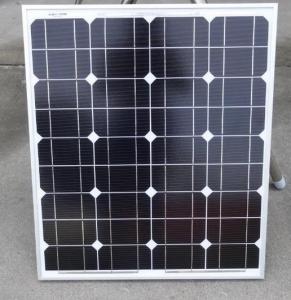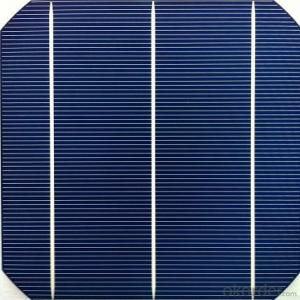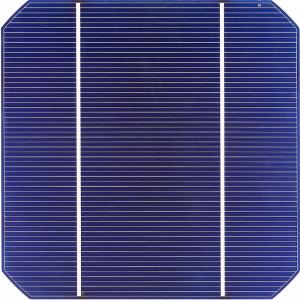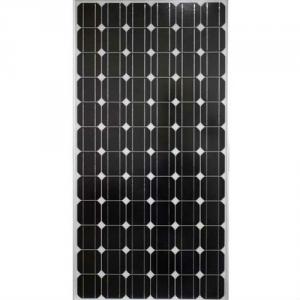Solar Cells Home Favorites Compare 2024 Hot Selling Monocrystalline Silicon Solar Panel Price 300W
- Loading Port:
- China Main Port
- Payment Terms:
- TT OR LC
- Min Order Qty:
- -
- Supply Capability:
- 10000000000000 watt/month
OKorder Service Pledge
OKorder Financial Service
You Might Also Like
Quick Details
| Place of Origin: | Guangdong China (Mainland) | Brand Name: | CAP | Model Number: | 50w100w150w200w250w300w |
| Material: | Monocrystalline Silicon | Size: | 1385*1035*75mm | Number of Cells: | 72pcs |
| Max. Power: | 300w | type: | solar panel | color: | blue&black |
| warranty: | 5 years |
Packaging & Delivery
| Packaging Detail: | standard export package for solar panel |
| Delivery Detail: | 7-15 days for solar panel |
Specifications
solar panel
High Efficiency
25 years Warranty
High-transmissivity low-iron tempered glass
Solar Panel
50w100w150w200w250w300w
Characteristics
1,High and stable conversion efficienly based on over 4 years professional experience
2 ,High reliability with guaranteed +/-10% output power tolerance
3,Proven materials,tempered front glass,and a sturdy anodized aluminum frame allow modules to operate reliably in multiple mountily configurations
4,Combination of high efficicncy and attractive appearance
Quality and Safety
1,25 year 80%,10 year 90% power warranty 3 year power warranty
2,ISO9001:2000 (Quality Management system) certified factory
3,Product Quality warranty & products Liability Insurance to guarantee and user' benefits
4,Certifications TUV Intercert, CE Temperature Coefficients
| Module Type | 100w | 150w | 200w | 250w | 300w |
| Maximum Power at ST(Pmax)W | 100wp | 150wp | 200wp | 250wp | 300wp |
| Maximum Power Voltage(Vmp)V | 36/18 | 36/18 | 36/18 | 30.8v | 36/18 |
| Maximum Power Current(Imp)A | 2.77/5.55 | 4.16/8.33 | 5.55/11.1 | 8.11A | 8.33/16.66 |
| Open Circuit Voltage(Voc)V | 39.5/19.05 | 39.3/19.4 | 39.6/19.5 | 36.2V | 39.6/19.8 |
| Short Circuit Current(Isc)A | 3.04/6.09 | 4.58/9.16 | 6.1/12.2 | 8.7A | 9.16/18.33 |
| Cell Efficiency(%) | 18.60% | 18.10% | 18.60% | 17.80% | 18.10% |
| Module Efficiency(%) | 17.70% | 17.20% | 17.70% | 17.10% | 17.20% |
| Operating Temperature°C | -40°C to +85°C | -40°C to +85°C | -40°C to +85°C | -40°C to +85°C | -40°C to +85°C |
| Maximum system voltage | 1000V(IEC)DC | 1000V(IEC)DC | 1000V(IEC)DC | 1000V(IEC)DC | 1000V(IEC)DC |
| Power tolerance | -0.03 | -0.03 | -0.03 | -0.03 | -0.03 |
| Temperature coefficients of Pmax | -0.45%/°C | -0.45%/°C | -0.45%/°C | -0.45%/°C | -0.45%/°C |
| Temperature coefficients of Voc | -0.27%/°C | -0.27%/°C | -0.27%/°C | -0.27%/°C | -0.27%/°C |
| Temperature coefficients of Isc | 0.05%/°C | 0.05%/°C | 0.05%/°C | 0.05%/°C | 0.05%/°C |
| Weight(kg) | 8 | 11 | 14 | 20 | 25.5 |
| Number of cell(pcs) | 4*9 | 4*9 | 6*10 | 6*12 | 6*12 |
| Dimensions(mm) | 1194*534*35/30 | 1580*808*50/35 | 1471*670*40/35 | 1640*992*50 | 2000*1050*50 |
- Q: Can solar cells be used for powering water treatment plants?
- Yes, solar cells can be used for powering water treatment plants. Solar energy can be harnessed and converted into electricity to power the various processes and equipment required for water treatment. This renewable energy source offers a sustainable and environmentally friendly solution for powering water treatment plants.
- Q: Can solar cells be used to power communication systems?
- Yes, solar cells can be used to power communication systems. Solar cells are capable of converting sunlight into electricity, which can then be used to power various electronic devices, including communication systems. This is particularly advantageous in remote or off-grid areas where it may be difficult or expensive to establish traditional power infrastructure. Additionally, solar-powered communication systems offer a sustainable and environmentally friendly alternative to relying solely on fossil fuels for energy.
- Q: What should I know about the Crystalline silicon photovoltaic cells?
- Crystalline silicon photovoltaic cells, known as cSi PV, are made of silicon atoms connected to one another to form a crystal lattice. This lattice comprises the solid material that forms the photovoltaic (PV) cell's semiconductors.
- Q: Can solar cells be used to power remote data collection systems?
- Yes, solar cells can be used to power remote data collection systems. Solar cells convert sunlight into electricity, providing a sustainable and reliable source of power for off-grid locations. This makes them ideal for powering remote data collection systems, allowing continuous operation without the need for a grid connection or frequent battery replacements.
- Q: How do solar cells perform in areas with high levels of radiation?
- Solar cells perform well in areas with high levels of radiation. The excess radiation actually increases the energy output of the solar cells, allowing them to generate more electricity.
- Q: Can solar cells be used in desert regions?
- Yes, solar cells can be effectively used in desert regions. Deserts have abundant sunlight, which is essential for generating solar energy. Additionally, the arid climate conditions in deserts provide less cloud cover and minimal air pollution, resulting in higher efficiency and output of solar cells.
- Q: Can solar cells be used in powering e-bikes?
- Yes, solar cells can be used in powering e-bikes. Solar panels can be installed on the surface of an e-bike or on a separate charging station to harness solar energy and convert it into electrical power. This power can then be used to charge the e-bike's battery, extending its range and reducing the reliance on grid electricity.
- Q: Can solar cells be used for powering agricultural irrigation systems?
- Yes, solar cells can be used for powering agricultural irrigation systems. Solar energy can be harnessed by installing solar panels that convert sunlight into electricity, which can then be used to power pumps and other equipment necessary for irrigation. This renewable energy source offers a sustainable and cost-effective solution for powering agricultural practices, especially in areas with limited access to electricity.
- Q: How do monocrystalline solar cells differ from polycrystalline solar cells?
- Monocrystalline solar cells are made from a single crystal structure, typically silicon, which allows for higher efficiency and performance in converting sunlight into electricity. On the other hand, polycrystalline solar cells are made from multiple crystal structures, resulting in a lower efficiency but a more cost-effective option.
- Q: Can solar cells be used in healthcare facilities?
- Yes, solar cells can be used in healthcare facilities. They can help power various equipment and devices, such as lighting, ventilation systems, and medical equipment, reducing reliance on traditional energy sources and lowering operational costs. Additionally, solar power can be utilized in remote and off-grid healthcare facilities, ensuring access to clean and sustainable energy for essential healthcare services.
Send your message to us
Solar Cells Home Favorites Compare 2024 Hot Selling Monocrystalline Silicon Solar Panel Price 300W
- Loading Port:
- China Main Port
- Payment Terms:
- TT OR LC
- Min Order Qty:
- -
- Supply Capability:
- 10000000000000 watt/month
OKorder Service Pledge
OKorder Financial Service
Similar products
Hot products
Hot Searches
Related keywords
